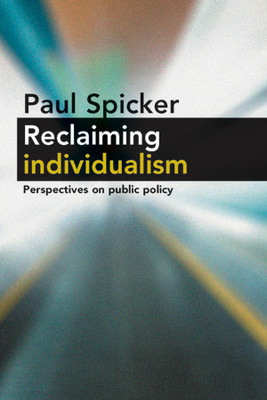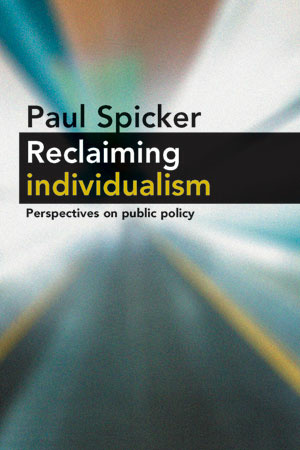Published
Apr 17, 2013Page count
208 pagesISBN
978-1447309086Dimensions
234 x 156 mmImprint
Policy PressThis book is about individualist ideas, and how they shape contemporary approaches to public policy. If we were to believe the existing literature, we might think that only markets can satisfy people's needs, and that any collective concept of welfare compromises individual welfare. The price mechanism is taken to be the best way to allocate resources, and it is assumed that individualised responses to need must be better than general ones.Reclaiming individualism reviews the scope of individualist approaches, and considers how they apply to issues of policy. It argues for a concept of individualism based on rights, human dignity, shared interests and social protection. A valuable resource for those working or studying in social or public policy, this book is a powerful restatement of some of the key values that led to individualism being such a force in the first place.
Paul Spicker is Grampian Chair of Public Policy at the Robert Gordon University, Aberdeen. His research has included studies of poverty, need, disadvantage and service delivery. His books on the theory of social policy include Stigma and social welfare, The welfare state: a general theory and Liberty, Equality, Fraternity.
Introduction: Six impossible things before breakfast;
Part 1: Individualism;
Individualism;
Individualism and collectivism;
Part 2: The moral dimensions of individualism;
Individual value and individual rights;
Autonomy and self-determination;
Personal responsibility;
Possessive individualism;
Individual welfare;
Part 3: Methodological individualism and rational self-interest;
Utility and choice;
Self interest;
Rationality;
The Pareto principle;
Part 4: Substantive policy;
Choice and the market;
More of the market: one solution for everything;
Personalised services;
The individualisation of social policy;
Part 5: Individuals and collective action;
Individual and social choices;
Collective action;
Solidarity and voluntary collective action;
Public services;
Part 6: Government and public policy;
The individual versus the state;
The role of government;
The moral agenda;
Social policy and the individual.










